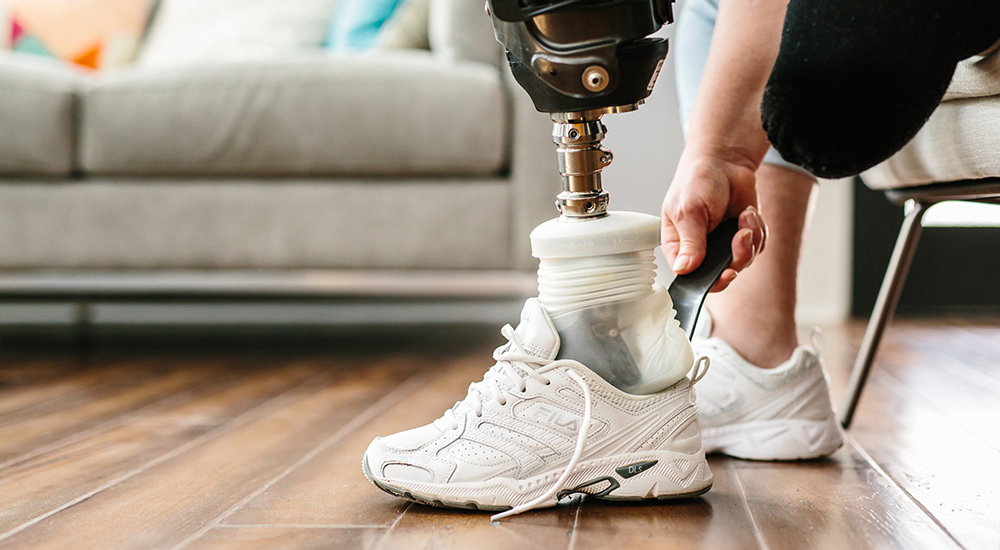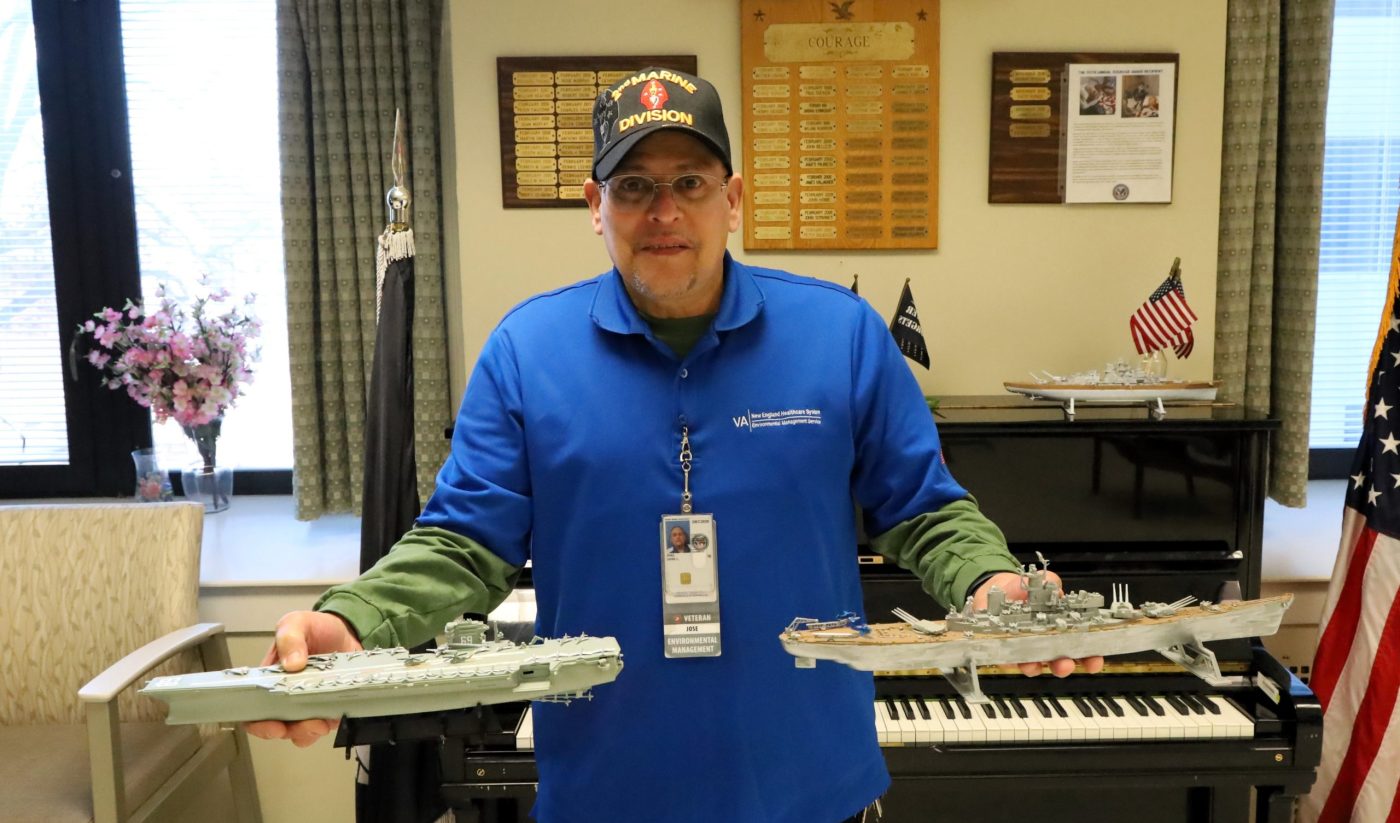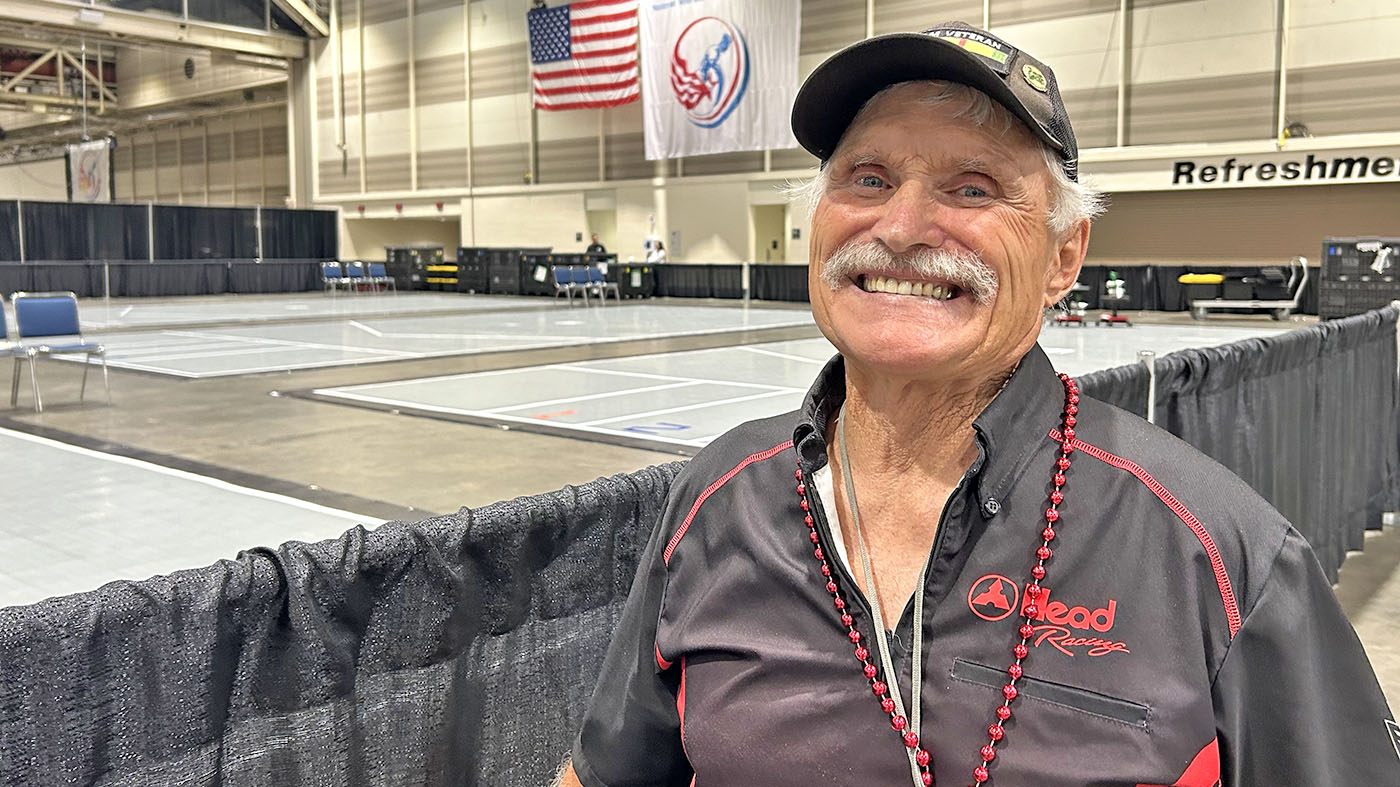Mac McEnery won’t slow down. He’s had prosthetics for years, never really taking him off course. Then, new prosthetic feet came into his life: the Ottobock Meridium, pictured above.
“I had a basic prosthesis, but when I heard about this one, I just had to get it,” says Mac. “I’ve had electronic ankles before, but these are superior.”
Mac is a patient of VA Maine Amputation Care for his prosthetic needs and sees a community partner of VA Maine Healthcare System who fit him with bilateral prosthetics. When Mac learned about this next generation of feet, he returned to the clinic to discuss it with VA prosthetist Christopher Blades. The clinic team agreed that he would be an excellent candidate due to his activity level. The Ottobock Meridium Feet was then prescribed.
Although Mac only had the new feet for two days he showed remarkable improvement in his ambulation and it was hard for him to restrain his excitement and gratitude. The feet provide him with greater adaptability allowing him to communicate with an app on his phone that prepares him for specific tasks like walking, driving, or walking up hills, all with less effort on his part.

(Left to right) Kim Michaud, Service Chief of Prosthetics, Amy Gartley, Associate Director for Patient and Nursing Services, Mac McEnery, Dr. Stephen Sears, Chief of Staff
Stopping by the VA Maine health care system to help celebrate National Prosthetic Week, Mac made sure he greeted Veterans, leadership and all his buddies in the Prosthetics and Sensory Aids Service.
The theme for this year’s National Prosthetic and Sensory Aids Service Week was “Committed to Advancing Veteran Independence Through Activity and Mobility.”
“I have first-hand experience with it,” said Mac. “Attitude is everything. I see others not doing so well and I just want to do what I can to be an inspiration.”
The Prosthetics and Sensory Aids service line works in collaboration with other service lines to promote high quality, efficient and cost-effective patient care in areas such as:
- Prosthetics and Orthotics
- Artificial Limbs
- Home Respiratory Care Program
- Aids for the Visually Impaired
- Amputation Care Clinic Team
- Surgical, Medical and Dental Implants
- Audiology (Hearing Aids) and Speech Devices
- Eyeglasses and Contact Lenses
- Durable Medical Equipment
- Wheelchairs and Special Mobility Devices
- Home Improvement Structural Allowance Program
- Provision/Processing of Automobile Adaptive Equipment and Clothing Allowance
- Home Telehealth

Topics in this story
More Stories
Army and Marine Corps Veteran started making models after being hospitalized at Connecticut VA.
Veteran Hank Ebert is a bit of a superstar in the National Veterans Wheelchair Games. He has been attending since 1993.
Embrace simplicity and balance during the holiday frenzy! Discover the beauty of self-care and a nourishing meal in this week's #LiveWholeHealth practice.






